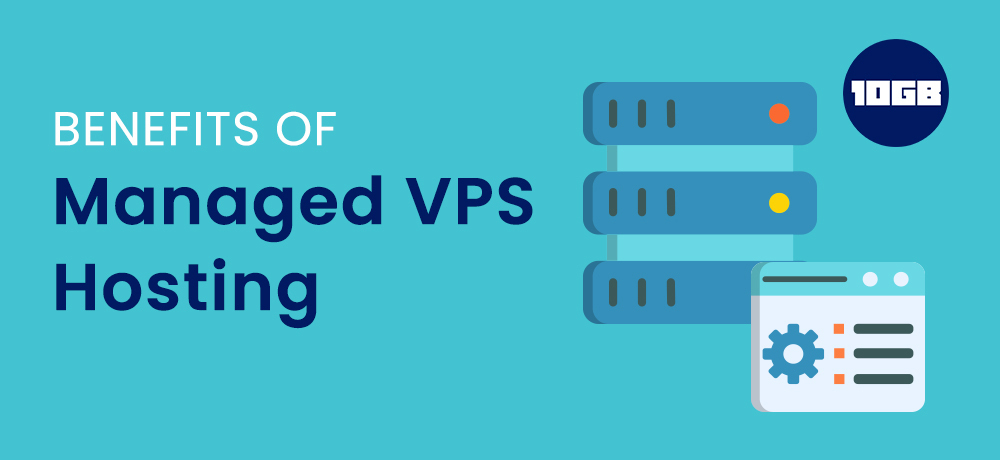
Table of Contents
A fully managed VPS (Virtual Private Server) offers several advantages, especially for users who may not have the time, expertise, or desire to handle server management tasks themselves. Here are the key benefits:
What is Managed VPS Hosting?
VPS hosting solves many of the problems presented by the cheaper shared plans. The virtual server you get with a VPS plan gives you a completely isolated environment for your website.
It has guaranteed hardware resources and a dedicated IP, and, crucially, the actions of others can’t affect its performance. The infinitely scalable resources let you change the server’s configuration at the click of a mouse, and you don’t need to pay for hardware you don’t use.
Meanwhile, web hosting providers can situate multiple VPSs on the same physical machine, meaning they can utilize the hardware more efficiently and offer VPS services at reasonable prices.
The only problem is, inexperienced users are not sure if they can manage an entire virtual server on their own. Often, they’re not familiar with the VPS’s operating system, and they have no idea how to perform software installations, apply security patches, and handle server maintenance tasks.
With a managed VPS, you won’t need to think about any of these things. It gives you the virtual server set up and ready to go. Your VPS host deploys the virtual machine and configures it so you can start work on your project immediately.
1. Expert Technical Support
Fully managed VPS hosting comes with comprehensive technical support from your hosting provider. This includes assistance with server setup, configuration, maintenance, and troubleshooting, ensuring that any issues are promptly addressed by experienced professionals.
2. Server Monitoring
Hosting providers continuously monitor the performance, uptime, and security of your VPS. This proactive monitoring helps identify and resolve potential problems before they impact your website or application, ensuring maximum reliability and performance.
3. Security Management in Fully Managed VPS
Managed VPS providers take care of implementing and maintaining robust security measures. This includes regular security updates, patch management, firewall configuration, malware scanning, intrusion detection, and prevention systems. These measures help protect your server from cyber threats and vulnerabilities.
4. Backups and Disaster Recovery
A fully managed VPS typically includes automated backup services. Regular backups ensure that your data is safe and can be restored quickly in case of data loss, corruption, or other disasters. Providers often offer disaster recovery solutions to minimize downtime and data loss.
5. Software Installation and Updates
Managed VPS providers handle the installation, configuration, and updating of essential server software, such as web servers (Apache, Nginx), databases (MySQL, PostgreSQL), and other applications. This ensures your server runs the latest, most secure, and stable versions of software.
6. Performance Optimization
Hosting providers often optimize server performance by configuring caching, load balancing, and other performance-enhancing techniques. This helps ensure that your applications run efficiently and can handle high traffic volumes without performance degradation.
7. Scalability
Managed VPS solutions typically offer easy scalability options. As your website or application grows, your hosting provider can assist with upgrading server resources such as CPU, RAM, and storage, ensuring smooth and seamless scaling.
8. Focus on Core Business
With server management taken care of by professionals, you can focus on your core business activities, such as developing your website, creating content, or serving your customers. This can lead to increased productivity and business growth.
9. Custom Configuration
Managed VPS providers often offer custom server configurations tailored to your specific needs. Whether you need a specific software stack, custom security settings, or other configurations, the hosting provider can set up and maintain the server according to your requirements.
10. Compliance
For businesses that need to comply with specific regulatory requirements (such as GDPR, HIPAA, or PCI DSS), managed VPS providers can help ensure that your server and data handling practices meet these standards. This can be critical for avoiding legal issues and maintaining customer trust.
11. Cost Efficiency
While managed VPS hosting can be more expensive than unmanaged hosting, it can save money in the long run by reducing the need for in-house IT staff, minimizing downtime, and preventing costly security breaches. The peace of mind and convenience it offers can also provide significant value.
Summary
A fully managed VPS is an excellent choice for businesses and individuals who want the benefits of dedicated server resources without the complexity and effort of managing the server themselves. It combines the performance and flexibility of a VPS with the convenience and support of professional management, making it a compelling option for many users.